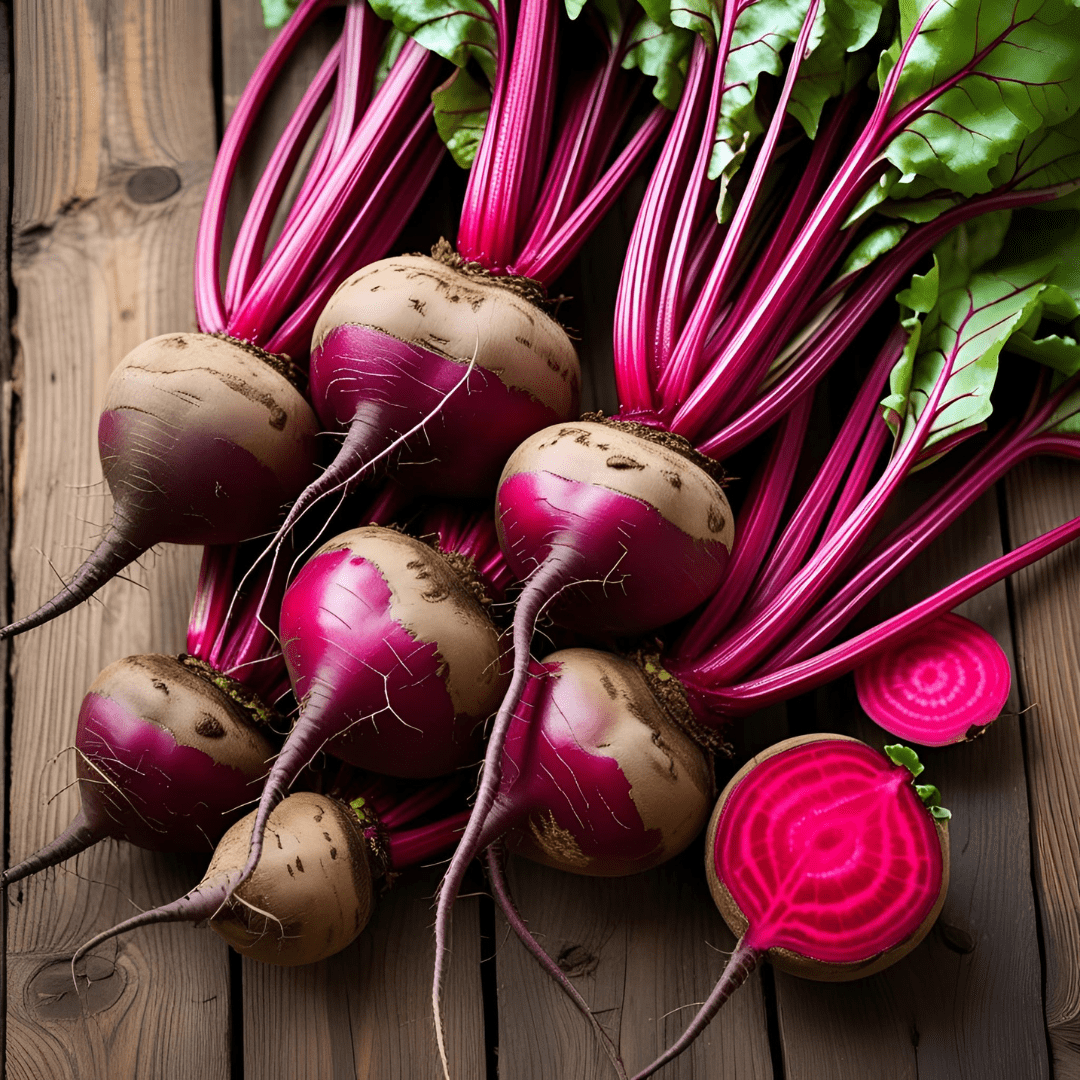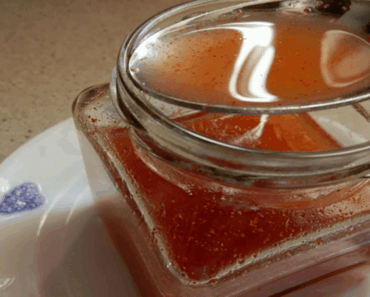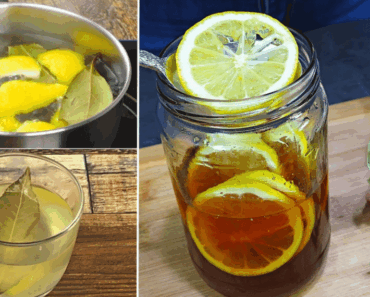Beetroot (Beta vulgaris), with its vibrant color and earthy-sweet flavor, is more than just an eye-catching addition to your plate. This humble root vegetable is increasingly recognized as a functional superfood, packed with a unique blend of nutrients and bioactive compounds that offer a broad spectrum of health benefits. From supporting your heart and brain to boosting exercise performance and even fighting chronic disease, here are 11 compelling reasons to make beetroot a daily staple in your diet.
1. Powerful Antioxidant Protection
Beetroot is rich in antioxidants, particularly betalains, which are the pigments responsible for its deep red hue. These antioxidants help neutralize harmful free radicals in the body, protecting cells from oxidative damage that can lead to chronic diseases and aging124. Betalains are especially effective at scavenging reactive oxygen and nitrogen species, thereby reducing oxidative stress and preventing DNA damage157.
2. Natural Anti-Inflammatory Effects
Chronic inflammation is at the root of many health problems, including heart disease, diabetes, and arthritis. Beetroot contains compounds such as betalains, phenolic acids, and flavonoids that exhibit potent anti-inflammatory properties247. Regular consumption of beetroot or its juice has been shown to lower markers of inflammation, helping to protect tissues and organs from long-term damage27.
3. Supports Heart Health and Lowers Blood Pressure
One of the most celebrated benefits of beetroot is its ability to support cardiovascular health. This is largely due to its high content of dietary nitrates, which the body converts into nitric oxide—a molecule that relaxes and widens blood vessels, improving blood flow and lowering blood pressure23589. Numerous studies have demonstrated that both acute and chronic beetroot supplementation can significantly reduce systolic and diastolic blood pressure, especially in people with hypertension2815.
4. Boosts Exercise Performance and Stamina
Athletes and fitness enthusiasts have embraced beetroot for its performance-enhancing effects. The nitrates in beetroot improve the efficiency of mitochondria (the energy-producing structures in cells), increase oxygen delivery to muscles, and reduce the oxygen cost of exercise23515. This translates into greater stamina, improved endurance, and faster recovery after intense workouts. Drinking beetroot juice before exercise has been shown to enhance athletic performance and reduce muscle soreness515.
5. Promotes Healthy Digestion and Gut Health
Beetroot is a good source of dietary fiber, which is essential for healthy digestion. Fiber adds bulk to stool, supports regular bowel movements, and feeds beneficial gut bacteria389. A healthy gut microbiome boosts immune function, reduces inflammation, and may even help regulate mood and weight. Consuming beetroot regularly can help prevent constipation and promote overall digestive health38.
6. Supports Brain Health and Cognitive Function
Nitric oxide, produced from the nitrates in beetroot, is not only good for your heart but also for your brain. It enhances blood flow to the brain, supporting cognitive function and potentially reducing the risk of dementia and neurodegenerative diseases28. Some studies suggest that older adults who consume beetroot juice experience improved mental performance and better reaction times, likely due to increased cerebral blood flow2815.
7. May Help Prevent Cancer
Beetroot’s vibrant color comes from betalains, which have demonstrated anti-cancer properties in laboratory studies147. These compounds can inhibit the growth of cancer cells, reduce angiogenesis (the formation of new blood vessels that feed tumors), and promote apoptosis (programmed cell death) in malignant cells147. While more research is needed in humans, the antioxidant and anti-inflammatory effects of beetroot suggest it may help reduce the risk of certain cancers17.
8. Supports Healthy Liver Function
The liver is your body’s main detoxification organ, and beetroot can help keep it functioning optimally. Betalains and other phytochemicals in beetroot support the liver’s natural detoxification processes, protect liver cells from damage, and may help prevent fatty liver disease710. Beetroot’s ability to reduce oxidative stress and inflammation further supports liver health10.
9. Helps Manage Blood Sugar and Diabetes
Beetroot contains compounds that may help regulate blood sugar levels and improve insulin sensitivity, making it a valuable food for people with diabetes or at risk of developing the condition89. Its fiber content slows the absorption of sugars, preventing spikes in blood glucose. Some studies suggest that beetroot juice can improve insulin responses after meals and support overall glycemic control89.
10. Aids in Weight Management
Despite its natural sweetness, beetroot is low in calories and fat while being high in fiber and water content. This combination promotes satiety, helping you feel full longer and potentially reducing overall calorie intake489. The fiber in beetroot also supports healthy digestion and metabolism, both of which are important for weight management89.
11. Promotes Healthy Skin
Beetroot’s antioxidants, anti-inflammatory compounds, and ability to improve blood flow all contribute to healthier, more radiant skin38. Drinking beetroot juice or including it in your diet may reduce skin inflammation, protect against oxidative damage, and enhance the delivery of nutrients and oxygen to skin cells, resulting in a clearer complexion and a natural glow3.
Bonus: Additional Nutritional Benefits
-
Rich in Essential Vitamins and Minerals: Beetroot is a good source of vitamin C, folate (B9), potassium, magnesium, and iron, all of which are vital for energy production, immune function, and red blood cell formation48.
-
Versatile in the Kitchen: Beetroot can be enjoyed raw, roasted, steamed, juiced, or blended into smoothies, soups, and salads. Its leaves are also edible and packed with nutrients48.
How to Incorporate Beetroot Into Your Daily Diet
-
Juice: Drink fresh beetroot juice alone or mixed with other fruits and vegetables.
-
Salads: Grate raw beetroot into salads for crunch and color.
-
Roasted: Toss beetroot cubes with olive oil and roast until tender.
-
Soups: Blend cooked beetroot into soups like classic borscht.
-
Smoothies: Add cooked or raw beetroot to your morning smoothie for a nutrient boost.
-
Snacks: Try beetroot chips or hummus for a healthy snack option.
Safety and Considerations
-
Beeturia: Consuming beetroot may cause pink or red urine and stool, a harmless condition known as beeturia.
-
Kidney Stones: Beetroot is high in oxalates, which can contribute to kidney stone formation in susceptible individuals. If you have a history of kidney stones, consult your doctor before increasing your beetroot intake.
-
Nitrate Sensitivity: While dietary nitrates are generally safe and beneficial, people taking certain medications or with specific health conditions should consult a healthcare provider.
Conclusion
Beetroot is a nutritional powerhouse with a wide range of scientifically supported health benefits. Its unique combination of antioxidants, nitrates, fiber, vitamins, and minerals make it a valuable addition to any diet. Whether you’re looking to boost your heart health, enhance athletic performance, support your brain, or simply enjoy a delicious and versatile vegetable, beetroot delivers. By making beetroot a daily habit, you can take a proactive step toward better health and wellbeing.
References:
1 https://pmc.ncbi.nlm.nih.gov/articles/PMC8565237/
2 https://pmc.ncbi.nlm.nih.gov/articles/PMC4425174/
3 https://www.webmd.com/diet/health-benefits-beetroot
4 https://journals.acspublisher.com/index.php/ijirem/article/view/11270
5 https://pubmed.ncbi.nlm.nih.gov/34760270/
7 https://journals.indexcopernicus.com/api/file/viewByFileId/1998991
8 https://www.wisdomlib.org/science/journal/world-journal-of-pharmaceutical-research/d/doc1385966.html
9 https://www.medicalnewstoday.com/articles/277432
10 https://www.mdpi.com/2077-0472/15/3/270
15 https://elo.health/blogs/articles/the-top-beetroot-benefits-according-to-science/
- https://pmc.ncbi.nlm.nih.gov/articles/PMC8565237/
- https://pmc.ncbi.nlm.nih.gov/articles/PMC4425174/
- https://www.webmd.com/diet/health-benefits-beetroot
- https://journals.acspublisher.com/index.php/ijirem/article/view/11270
- https://pubmed.ncbi.nlm.nih.gov/34760270/
- https://pubmed.ncbi.nlm.nih.gov/25875121/
- https://journals.indexcopernicus.com/api/file/viewByFileId/1998991
- https://www.wisdomlib.org/science/journal/world-journal-of-pharmaceutical-research/d/doc1385966.html
- https://www.medicalnewstoday.com/articles/277432
- https://www.mdpi.com/2077-0472/15/3/270
- https://www.psu.edu/news/research/story/beet-or-not-beet-researchers-test-theories-beet-juice-benefits
- https://consensus.app/home/blog/health-benefits-of-beets/
- https://pubmed.ncbi.nlm.nih.gov/37990613/
- https://pubmed.ncbi.nlm.nih.gov/32292042/
- https://elo.health/blogs/articles/the-top-beetroot-benefits-according-to-science/








